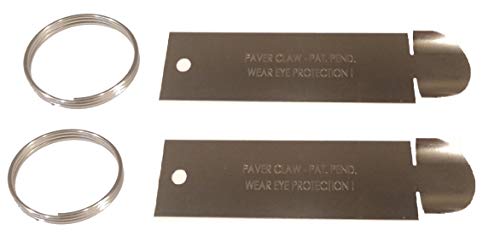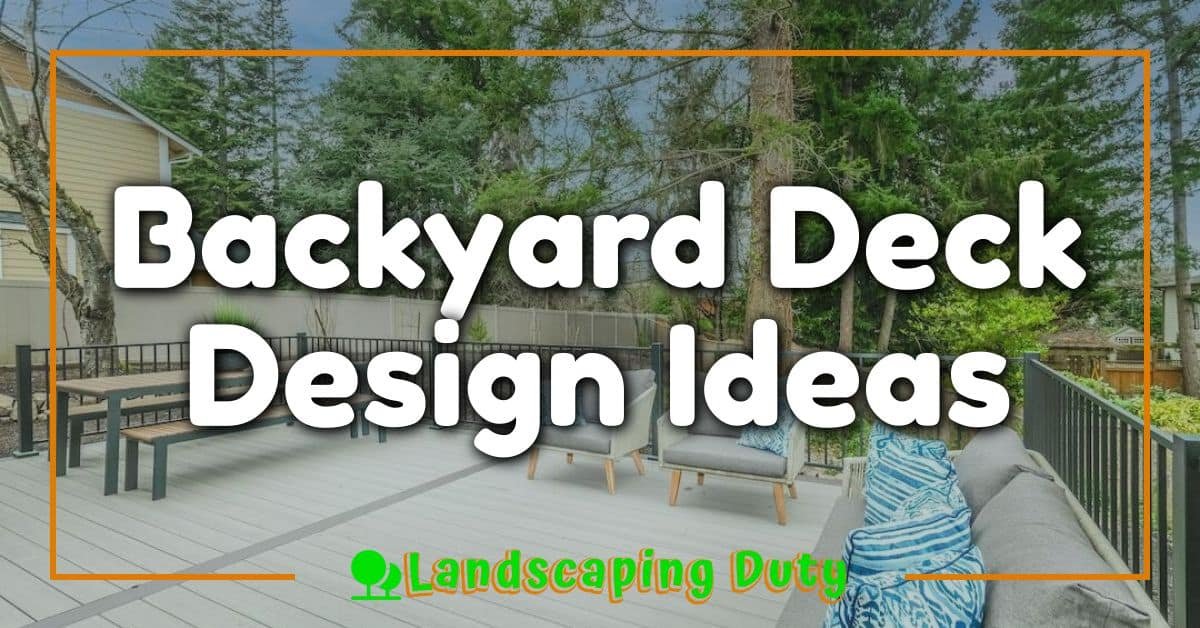When it comes to choosing pavers for your outdoor spaces, durability is a key factor to consider. We all want our patios, driveways, or walkways to withstand the test of time and weather. In this article, we’ll explore the question on many homeowners’ minds: which pavers last the longest?

Selecting the right type of pavers can make a significant difference in the longevity and appearance of your outdoor surfaces. From concrete to natural stone to brick, each material offers unique qualities that impact its lifespan. Join us as we delve into the world of pavers, uncovering the options that stand the test of time and provide lasting beauty for your outdoor projects.
Understanding Paver Durability
As landscape designers, we understand the importance of durability when it comes to selecting pavers for outdoor spaces. It’s crucial to choose pavers that not only enhance the aesthetics of your patio, driveway, or walkway but also stand the test of time. Different materials offer varying levels of longevity, so let’s delve into the factors that affect paver durability and compare the types of pavers available to help you make an informed decision for your outdoor projects.
Factors Affecting Paver Longevity
When considering the longevity of pavers, several key factors come into play. Proper installation is essential to ensure the pavers remain structurally sound over time. Adequate base preparation and joint stabilization contribute significantly to the durability of the paver surface. Additionally, the maintenance routine, including regular cleaning and sealing, plays a vital role in extending the lifespan of the pavers. Climate conditions and the intended use of the outdoor space are also influential factors in determining how long the pavers will last.
Types of Pavers: A Comparison
There are various types of pavers available, each with its unique characteristics affecting durability. Concrete pavers are known for their strength and versatility, making them a popular choice for outdoor projects. They are resistant to cracking and fading, offering a long-lasting solution for patios and driveways. Natural stone pavers, such as granite or sandstone, exude a timeless beauty and are incredibly durable against the elements. While they may require occasional maintenance, their longevity and sophisticated appearance make them a sought-after option for outdoor spaces.
Brick pavers, on the other hand, provide a classic appeal and exceptional durability. These pavers can withstand heavy loads and are resistant to wear and tear, ensuring they maintain their charm for years to come. By understanding the unique characteristics of each type of paver and considering factors like maintenance requirements and aesthetic preferences, you can select pavers that will not only last the longest but also enhance the overall look of your outdoor living areas.
Concrete Pavers: An Overview
As landscape designers, we know that choosing the right pavers for outdoor projects is crucial. Concrete pavers stand out as a fantastic option due to their durability, versatility, and aesthetic appeal. Let’s dive into why concrete pavers are a top choice for longevity and beauty in outdoor spaces.
Advantages of Concrete Pavers
Concrete pavers have several advantages that make them a durable option for various outdoor applications. Here’s why they stand out:
- Durability: Concrete pavers are incredibly sturdy and can withstand heavy loads, making them suitable for driveways, walkways, and patios that experience high traffic.
- Versatility: With a wide range of shapes, sizes, colors, and textures available, concrete pavers offer versatility in design. Whether you prefer a modern, rustic, or traditional look, there’s a concrete paver to match your style.
- Easy Installation: Concrete pavers are relatively easy to install, allowing for quick and efficient completion of outdoor projects. This convenience is a significant advantage, especially for homeowners looking to upgrade their outdoor spaces promptly.
Maintenance and Longevity
When it comes to maintenance, concrete pavers are low-maintenance compared to other materials like natural stone. Here’s a glimpse of what makes them easy to care for and ensures their longevity:
- Sealing: Applying a sealant to concrete pavers can protect them from stains, oil spills, and color fading, extending their lifespan significantly.
- Regular Cleaning: Simple routine cleaning with water and mild detergent can help maintain the appearance of concrete pavers over time.
- Repairability: In the rare event of damage, individual concrete pavers can be easily replaced without needing to redo an entire section, saving time and money on repairs.
Concrete pavers offer a winning combination of durability, versatility, and low maintenance, making them an excellent choice for lasting outdoor beauty.
Natural Stone Pavers: Time-Tested Elegance
As landscape designers, we appreciate the timeless elegance natural stone pavers bring to outdoor spaces. They are a popular choice for those seeking durability and a classic aesthetic appeal that stands the test of time.
Types of Stone Pavers and Their Durability
When it comes to natural stone pavers, there are various types to choose from, each with its unique characteristics and durability levels:
- Granite: Known for its strength and durability, granite pavers are resistant to wear and weathering, making them a long-lasting option for outdoor use.
- Travertine: With its unique textured surface, travertine pavers offer a blend of beauty and strength, ideal for creating sophisticated outdoor features.
- Bluestone: Bluestone pavers are prized for their natural blue-gray hue and durability, making them a popular choice for outdoor applications that require a rugged yet elegant look.
Care and Maintenance for Stone Pavers
To ensure the longevity of natural stone pavers, proper care and maintenance are essential:
- Sealing: We recommend sealing natural stone pavers to protect them from stains, moisture, and the effects of changing weather conditions.
- Regular Cleaning: Keeping stone pavers clean from dirt, debris, and organic matter helps prevent staining and prolongs their lifespan.
- Repairing: Promptly addressing any cracks or damages in stone pavers can prevent further deterioration and maintain their structural integrity over time.
By selecting natural stone pavers and following a proactive care and maintenance routine, outdoor spaces can exude a sense of enduring elegance while withstanding the test of time.
Brick Pavers: The Traditional Choice
As landscape designers, we often recommend brick pavers for outdoor spaces due to their longevity and classic appeal. Brick pavers have stood the test of time, known for their ability to last for decades with proper care. Let’s delve into why brick pavers can endure for such extended periods and how to maintain them effectively.
Why Brick Pavers Can Last Decades
Brick pavers are renowned for their exceptional durability, making them a preferred choice for outdoor projects. The longevity of brick pavers can be attributed to their robust nature and resistance to various weather conditions. Unlike some materials that degrade over time, brick pavers retain their structural integrity, ensuring a lasting foundation for your outdoor living areas.
Furthermore, the manufacturing process of brick pavers involves high heat, resulting in a dense and solid product that can withstand heavy foot traffic and environmental stressors. This durability translates to a prolonged lifespan for your outdoor surfaces, providing you with years of enjoyment and functionality.
Maintaining Brick Pavers for Extended Life
To ensure that your brick pavers remain in optimal condition for an extended period, regular maintenance is essential. Simple yet effective maintenance practices can significantly contribute to enhancing the longevity of your brick pavers. Here are some key tips for maintaining brick pavers:
- Regular Cleaning: Keep your brick pavers clean by sweeping away debris and dirt. Periodic washing with water and a mild detergent can help preserve the appearance of your pavers.
- Weed Control: Prevent weeds from taking root in the joints of your brick pavers by applying a suitable weed killer or using natural methods to inhibit weed growth.
- Sealing: Consider sealing your brick pavers to protect them from stains, moisture intrusion, and color fading. Sealants can also enhance the vibrancy of the bricks and extend their lifespan.
- Prompt Repairs: Address any loose, chipped, or damaged brick pavers promptly. Timely repairs can prevent further deterioration and maintain the structural integrity of your outdoor surfaces.
By following these maintenance practices, you can ensure that your brick pavers continue to adorn your outdoor spaces beautifully for many years to come.
« 5 Surprising Reasons Your Pavers Are Sinking – Secrets Revealed Top Secret Revealed: The Ultimate Ice Melt to Rescue Your Pavers! 💎❄️ »
Porcelain Pavers: Modern and Durable
The Rising Popularity of Porcelain Pavers
As landscape designers, we’ve witnessed a significant rise in the demand for porcelain pavers in outdoor projects. Their modern aesthetic and remarkable durability have made them a top choice for many homeowners and commercial spaces alike. Porcelain pavers come in a wide array of colors, textures, and sizes, offering versatility that allows us to create unique outdoor designs tailored to our clients’ preferences.
One of the key factors driving the popularity of porcelain pavers is their ability to mimic natural materials like stone or wood while providing enhanced strength and resilience. This unique blend of aesthetics and durability makes porcelain pavers a sought-after option for outdoor spaces that require both style and long-lasting performance.
The Longevity of Porcelain in Paving
When it comes to longevity, porcelain pavers truly shine in outdoor applications. Our experience has shown us that these pavers are exceptionally durable and resistant to wear and tear, making them a robust choice for high-traffic areas such as patios, walkways, and pool decks. Unlike natural stone or concrete pavers, porcelain pavers are engineered to withstand various weather conditions, ensuring that they maintain their pristine appearance for years to come.
The longevity of porcelain in paving is further enhanced by its resistance to moisture, stains, and fading. This exceptional resilience means that our clients can enjoy their outdoor spaces without worrying about extensive maintenance or frequent replacements. By choosing porcelain pavers, we can confidently assure our clients that they are investing in a paving solution that not only looks stunning but also stands the test of time.
Tips for Extending the Life of Your Pavers
Proper Installation Practices
When it comes to ensuring the longevity of your pavers, proper installation is key. We can’t stress enough the importance of a well-executed installation process. It not only enhances the durability of your pavers but also prevents issues down the line.
- Start with a solid base: Before laying the pavers, make sure the base is properly prepared. Compacting the soil and adding a layer of gravel ensures stability and helps prevent shifting over time.
- Use quality materials: Opt for high-quality sand, gravel, and paver edging materials during installation. Choosing the right materials can significantly impact the lifespan of your pavers.
- Pay attention to drainage: Proper drainage is essential to prevent water damage and shifting. Ensure that water flows away from the paved area to avoid pooling and erosion.
Regular Maintenance Tips
Maintaining your pavers is crucial for their long-term durability and aesthetic appeal. By incorporating these simple maintenance practices into your routine, you can extend the lifespan of your pavers and keep them looking beautiful for years to come.
- Regular cleaning: Sweeping or rinsing your pavers regularly removes debris and prevents staining. Consider power washing for a deeper clean.
- Weed control: Keep weeds at bay by pulling them regularly and using a suitable weed control solution to prevent their regrowth.
- Sealing: Apply a quality sealer to your pavers to protect them from stains, fading, and harsh weather conditions. Reapply as needed to maintain the protective barrier.
- Prompt repairs: Address any damages or loose pavers promptly to prevent further deterioration and maintain the structural integrity of the paved surface.
Conclusion
In our exploration of concrete, natural stone, brick, and porcelain pavers, we’ve uncovered a variety of options for creating durable and visually appealing outdoor spaces. By understanding the unique characteristics of each type of paver and implementing proper installation and maintenance practices, we can significantly extend their lifespan. Whether you prefer the classic look of brick or the modern elegance of porcelain, there are options available to suit every style and need. Remember, investing in quality materials and regular upkeep will not only enhance the longevity of your pavers but also keep your outdoor area looking beautiful for years to come.












